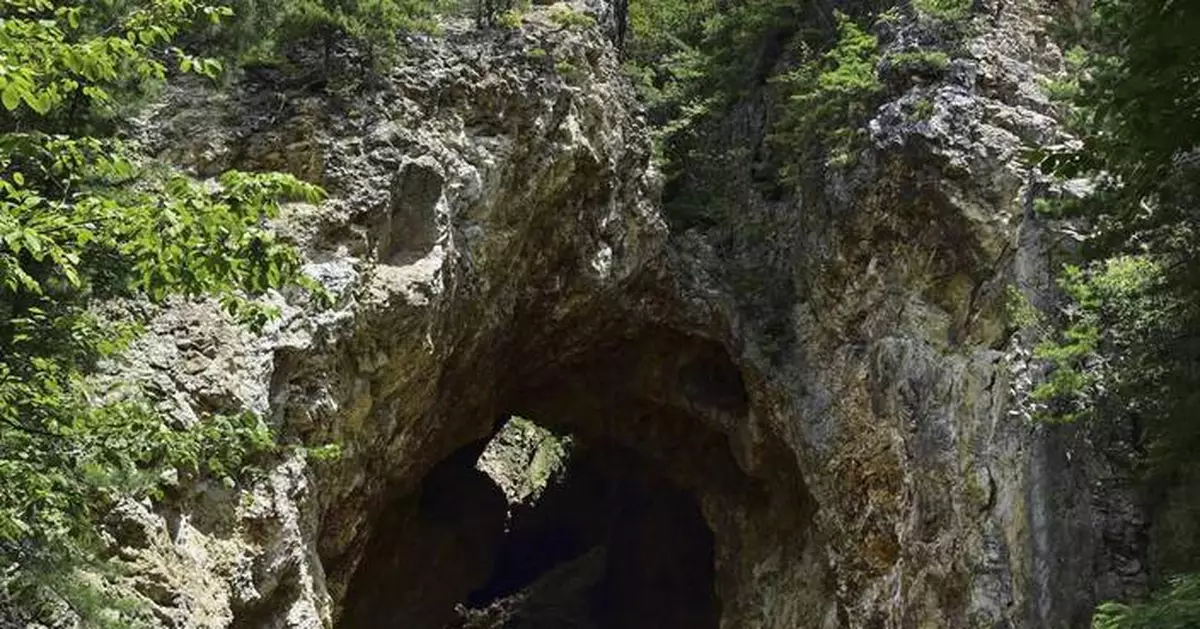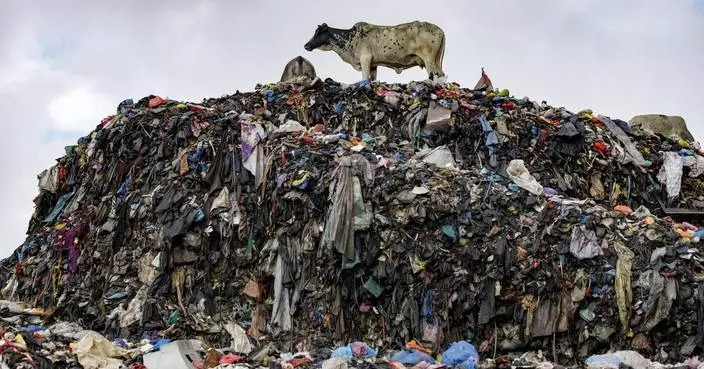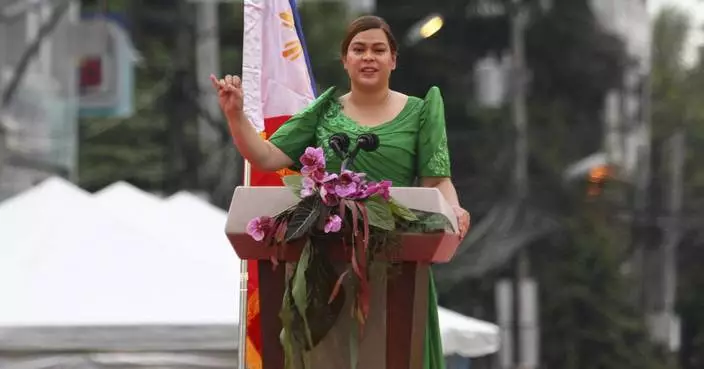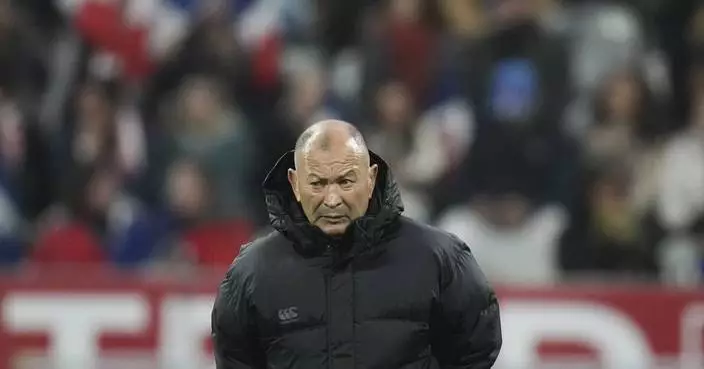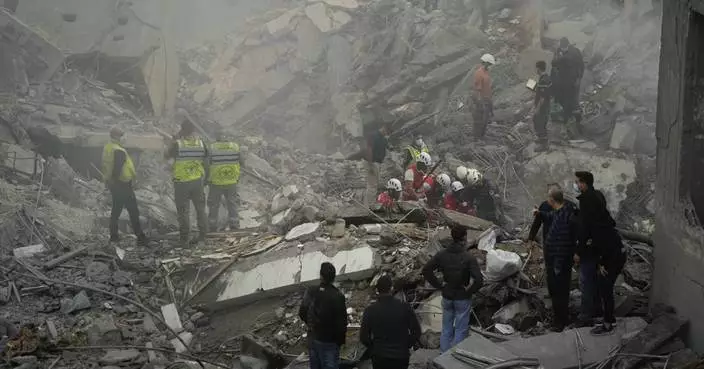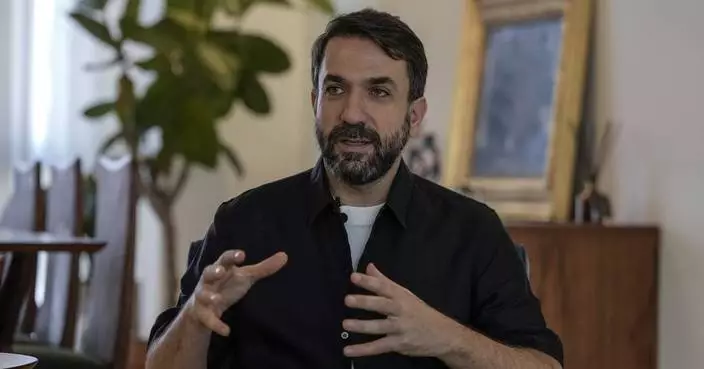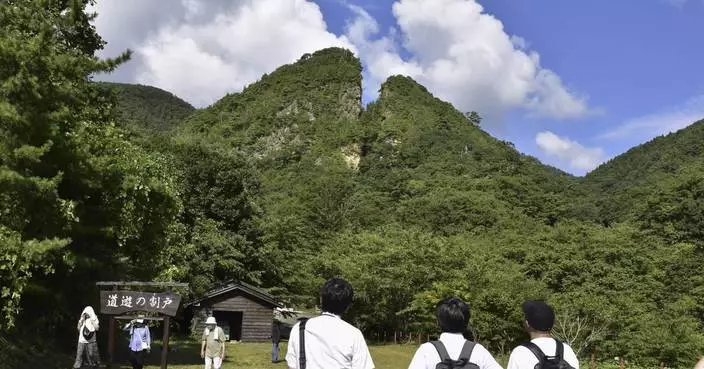SEOUL, South Korea (AP) — South Korea’s government said Saturday it will not attend a memorial service near Japan’s Sado Island Gold Mines due to disagreements with Tokyo over the event, which stirred longstanding tensions over the abuse of Korean forced laborers at the site before the end of World War II.
The decision marked a rare display of friction between the countries since the 2022 inauguration of South Korean President Yoon Suk Yeol. Yoon has prioritized improving relations with Japan following years of disputes over their bitter history and solidifying three-way security cooperation with Washington to counter North Korean nuclear threats, but has faced accusations at home that he was neglecting the suffering of Korean survivors.
South Korea’s Foreign Ministry said in a statement it was impossible to settle the disagreements between both governments before the planned event near the mines on Sunday. Japanese officials had no immediate comment.
Some South Koreans had criticized Yoon’s government for throwing its support behind an event without securing a clear Japanese commitment to highlight the plight of Korean laborers.
South Korean sentiment over the event worsened after the Japanese government said this week it would send Akiko Ikuina, a parliamentary vice minister, to the event. Ikuina had reportedly visited Tokyo’s controversial Yasukuni Shrine following her election as a lawmaker in 2022. The shrine honors the country’s 2.5 million war dead, including convicted war criminals. Japan’s neighbors view the shrine as a symbol of the country’s past militarism.
In an interview with MBN television, South Korean Foreign Minister Cho Tae-yul acknowledged that Ikuina’s Yasukuni visit was an issue of contention between the countries’ diplomats.
“That issue and various other disagreements between diplomatic officials remain unresolved, and with only a few hours remaining until the event, we concluded that there wasn’t sufficient time to resolve these differences,” Cho said. “We notified them of our decision in the afternoon.”
There were also complaints over South Korea agreeing to pay for the travel expenses of Korean victims’ family members who were invited to attend the ceremony.
Ties between Seoul and Tokyo have long been complicated by grievances related to Japan’s brutal rule of the Korean Peninsula from 1910 to 1945, when hundreds of thousands of Koreans were mobilized as forced laborers for Japanese companies, or sex slaves at Tokyo’s military-run brothels during World War II. Many forced laborers are already dead and survivors are in their 90s.
Historians say hundreds of Koreans were forced to labor at the Sado mines under abusive and brutal conditions during World War II. Japan’s government has said Sunday’s ceremony will pay tribute to “all workers” who died at the mines, without specifying who they are. Critics saw this as part of a persistent policy of whitewashing Japan’s history of sexual and labor exploitation before and during the war.
The 16th-century mines on the island of Sado, off the western coast of Niigata prefecture, operated for nearly 400 years before closing in 1989 and were once the world’s largest gold producer. The mines were designated as a UNESCO World Heritage site earlier this year after Tokyo and Seoul settled a yearslong dispute. South Korea withdrew its opposition to the listing after Japan agreed to acknowledge Korean suffering more clearly in the site’s exhibition and to include Koreans in a memorial ceremony.
In 2023, Yoon took a major step toward improving ties with Japan that had deteriorated for years over historical grievances and trade disputes, by announcing a plan to compensate Korean forced laborers from the colonial period without requiring contributions from Japanese companies.
Yoon’s plan, which relies on money raised in South Korea, drew an immediate backlash at home from former forced laborers and their supporters, who had demanded direct compensation from the Japanese companies and a fresh apology from the Japanese government. __ AP writer Mari Yamaguchi in Tokyo contributed.
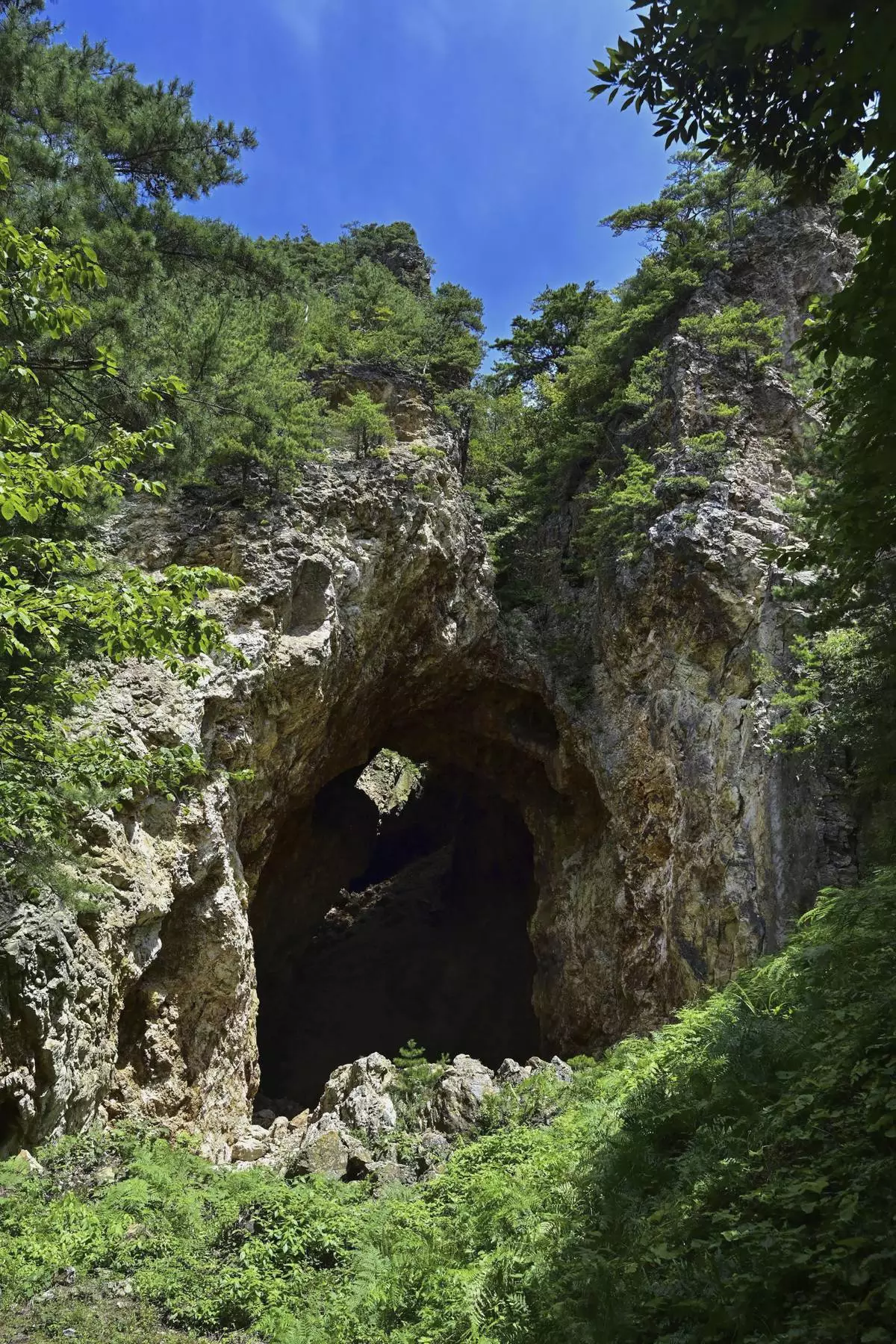
Remains of Japan’s Sado gold mine are seen on Sado Island, northern Japan, on Aug. 19, 2021. (Keiji Uesho/Kyodo News via AP)
BAKU, Azerbaijan (AP) — The United Nations' annual climate talks pushed into overtime Saturday as negotiators pressed on to get a deal on money for developing nations to curb and adapt to climate change.
Several countries were left angry and disappointed at the latest proposed deal from the talks on Friday afternoon. That draft pledged $250 billion annually by 2035, more than double the previous goal of $100 billion set 15 years ago but far short of the annual $1 trillion-plus that experts say is needed.
Top leaders and negotiators — including the U.K.’s Ed Miliband, Germany’s climate envoy Jennifer Morgan and negotiators from Central and South American countries — huddled in offices much of Saturday as they hashed out a new deal that both rich and developing nations could agree on. Sources within the negotiations told The Associated Press that the next version of the deal could see a new, higher figure of $300 billion under the right conditions.
But for Panama's negotiator Juan Carlos Monterrey Gomez even a higher figure is “still crumbs.”
“You know, how do you go from the request of $1.3 trillion to $300 billion? I mean, is that even half of what we put forth?” he asked.
Alden Meyer, of the European think tank E3G, said negotiators now have very little room for error.
“They’ve got to make sure whatever they put on the table is something that can fly. ... Because otherwise we start to lose critical mass as ministers start to leave tonight and into tomorrow,” Meyer said. “So, they are under a deadline, but this is when it gets real.”
The climate talks, called COP29, in Baku, Azerbaijan, were scheduled to end Friday. Workers have already begun dismantling the venue for the talks.
Wealthy nations are obligated to help vulnerable countries under an agreement reached at these talks in Paris in 2015. Developing nations are seeking $1.3 trillion to help adapt to droughts, floods, rising seas and extreme heat, pay for losses and damages caused by extreme weather, and transition their energy systems away from planet-warming fossil fuels and toward clean energy.
On Saturday morning, Irish environment minister Eamon Ryan said that he felt there'll be a new number in the next draft.
"We’ll have to see what the final number is. I don’t think it’ll be the one initially published yesterday," Ryan said. “But it’s not just that number — it's how do you get to 1.3 trillion."
Ryan said that any number reached at the COP will have to be supplemented with other sources of finance, for example through a market for carbon emissions where polluters would pay to offset what they emit.
The amount in any deal reached at COP negotiations — often considered a “core” — will then be mobilized or leveraged for greater climate spending. But much of that means loans for countries drowning in debt.
Some observers were wary about how negotiations were going Saturday.
“A fundamental principle of U.N. summits is that they are a party driven process, where countries are supposed to be negotiate directly with each other. COP29 however has seen that eroded,” said Mohamed Adow, director of the think tank Power Shift Africa.
"Not only have the open negotiations be replaced largely with backroom deals, but there has also been pressure for developing countries to accept the paltry offer that’s currently on the table. This is a worrying sign and must not be allowed to happen,” he said.
Meyer of E3G said it’s also still up in the air whether a deal will come out of Baku at all.
“It is still not out of the question that there could be an inability to close the gap on the finance issue,” he said. “That obviously is not an ideal scenario.”
Several dozen activists marched in silence outside the halls where delegates meet late Friday, raising and crossing their arms in front of themselves to indicate rejection of the draft text.
Also late Friday, 355 civil society organizations released a letter in support of the G77 and China negotiating group’s rejection of the latest draft.
The letter urged negotiators to “stand up for the people of the Global South," saying that “no deal in Baku is better than a bad deal.”
Lidy Nacpil, a Filipino coordinator with the Asian Peoples’ Movement on Debt and Development, said activists would still be unhappy if the climate finance number doubles to $500 billion.
“We’re still at this point where we are asking developing countries to stay strong and not just give in to far, far less than what should be,” she said.
With bleary eyes, seated around cold pizza, a group of youth activists chatted to keep each other awake through the early hours of Saturday in one of the main halls of the venue.
“All of us are kind of in mourning in a way,” said Jessica Dunne, with the Alliance of Non-Governmental Radical Youth. But the group said being in community eases the painful emotions that come with a process Dunne called an “abject failure.”
“In these halls tonight, as we’re sitting here and we’re talking and we’re dancing and crying and laughing, it kind of gives you hope that there will be another day that we’re going to fight for,” she said.
Associated Press journalists Ahmed Hatem, Aleksandar Furtula and Joshua A. Bickel contributed to this report.
The Associated Press’ climate and environmental coverage receives financial support from multiple private foundations. AP is solely responsible for all content. Find AP’s standards for working with philanthropies, a list of supporters and funded coverage areas at AP.org.
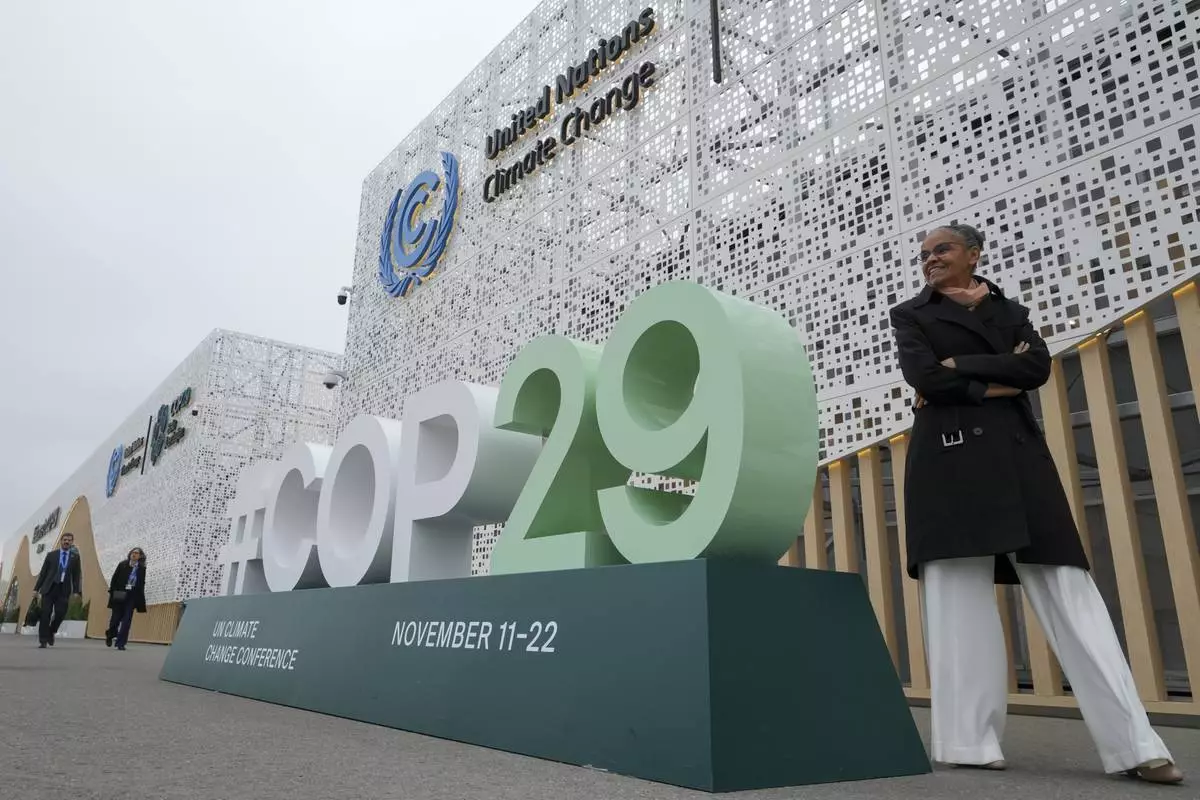
Marina Silva, Brazil environment minister, stands near a sign for the COP29 U.N. Climate Summit, Saturday, Nov. 23, 2024, in Baku, Azerbaijan. (AP Photo/Sergei Grits)
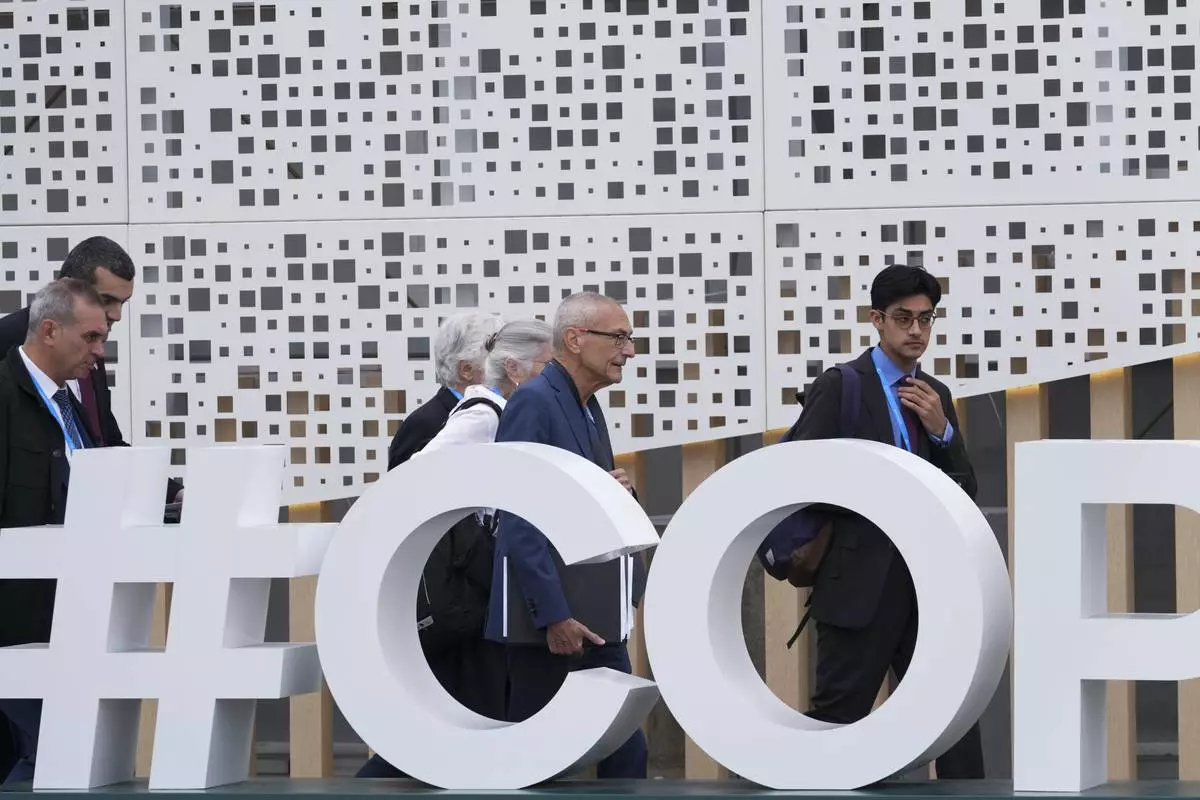
John Podesta, U.S. climate envoy, center right, and U.S. Deputy Climate Envoy Sue Biniaz, center, walk outside the venue for the COP29 U.N. Climate Summit, Saturday, Nov. 23, 2024, in Baku, Azerbaijan. (AP Photo/Sergei Grits)
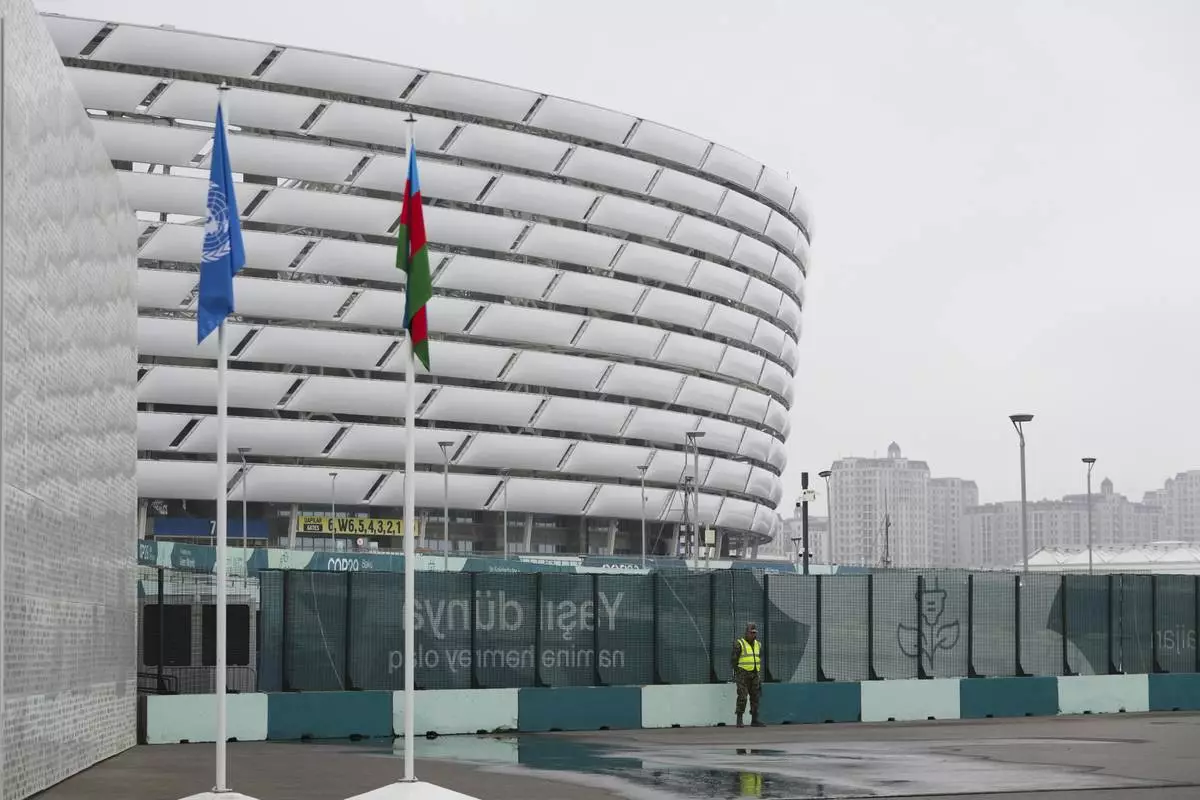
A member of security stands with the Baku Olympic Stadium in the background during the COP29 U.N. Climate Summit, Saturday, Nov. 23, 2024, in Baku, Azerbaijan. (AP Photo/Sergei Grits)
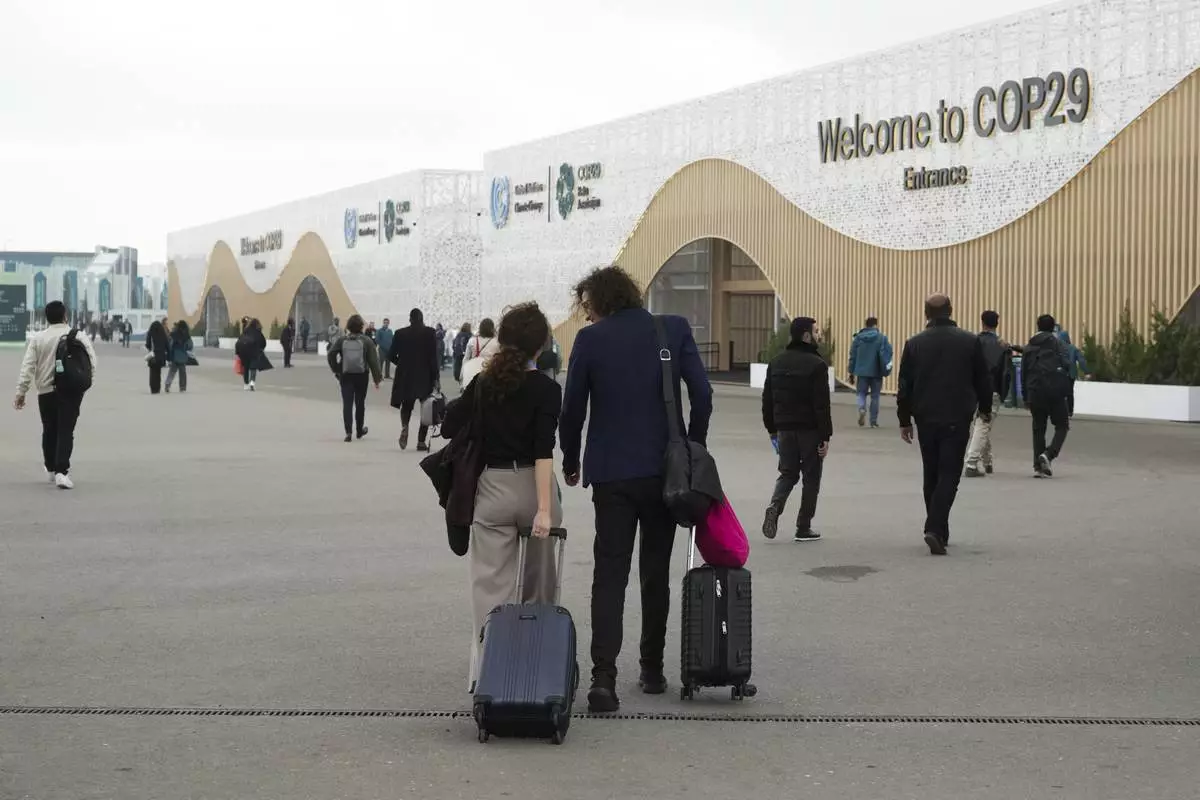
Attendees pull luggage as they walk into the venue for the COP29 U.N. Climate Summit, Saturday, Nov. 23, 2024, in Baku, Azerbaijan. (AP Photo/Sergei Grits)
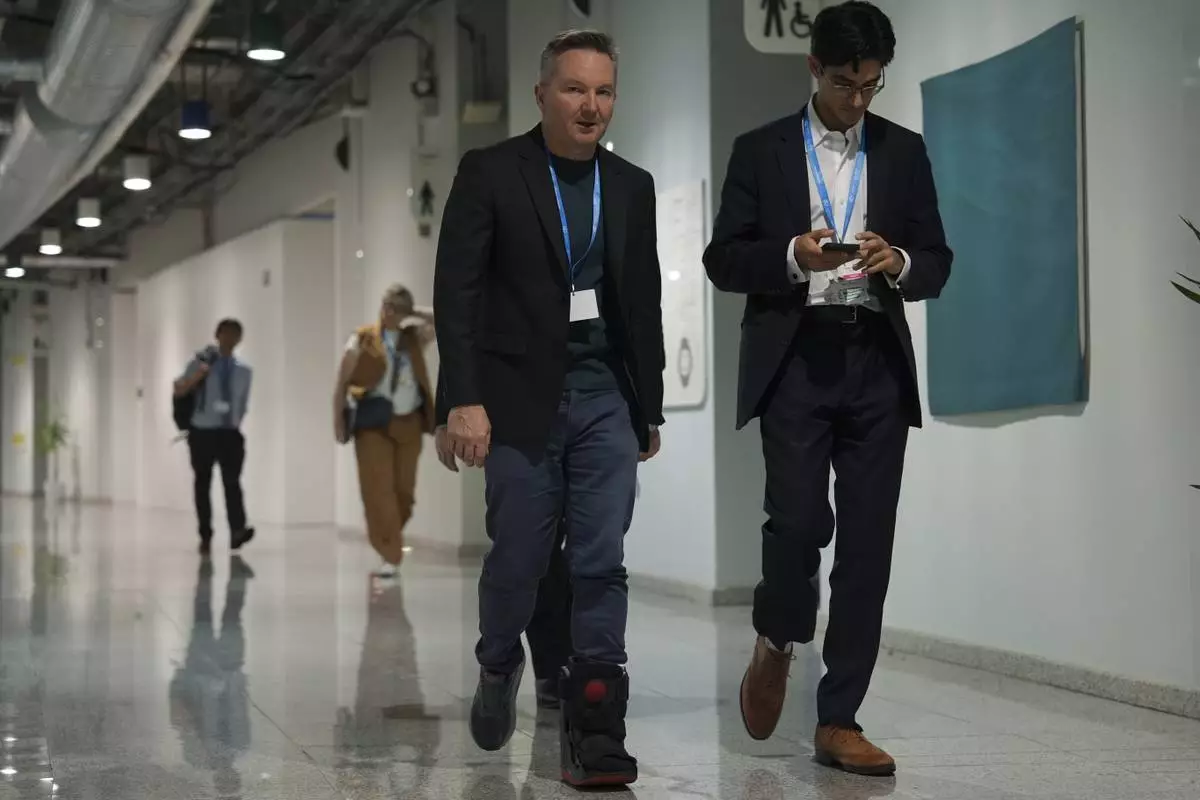
Australia Climate Minister Chris Bowen, center, walks through a hallway at the COP29 U.N. Climate Summit in the early hours of Saturday, Nov. 23, 2024, in Baku, Azerbaijan. (AP Photo/Joshua A. Bickel)
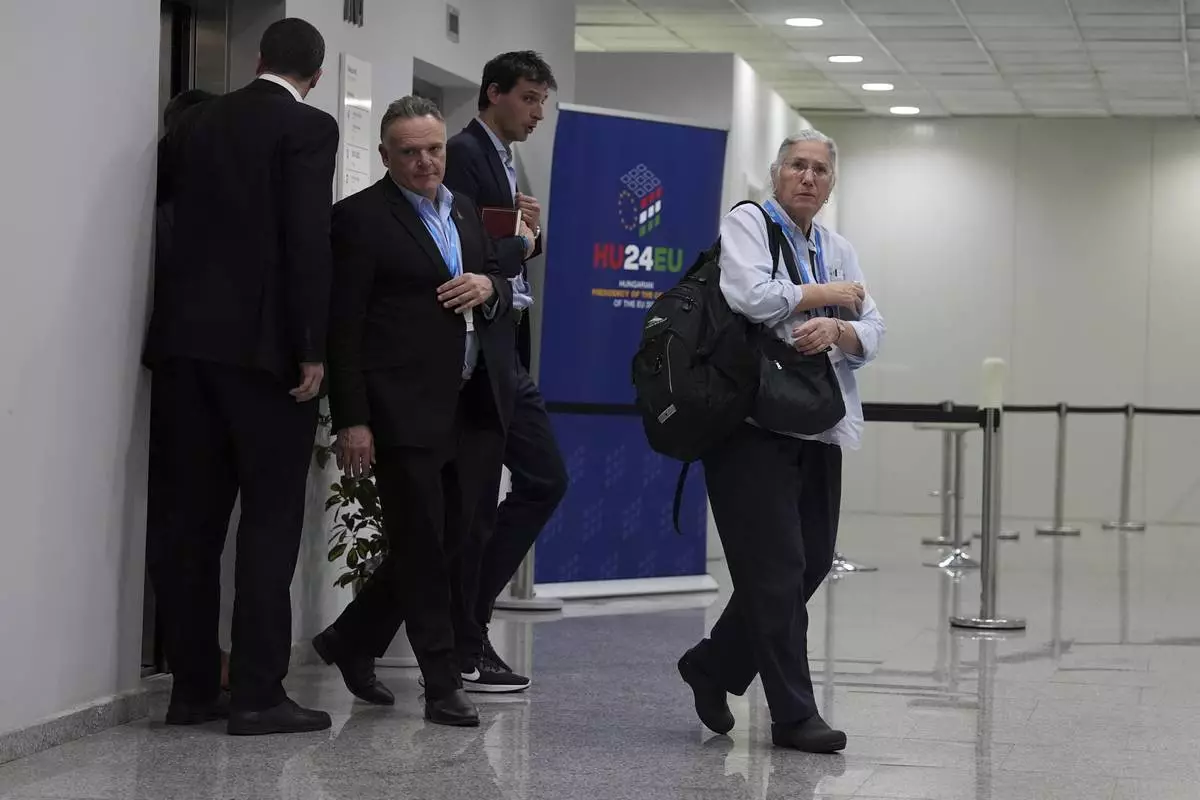
U.S. Deputy Climate Envoy Sue Biniaz, right, and Wopke Hoekstra, EU climate commissioner, second from right, walk out of an elevator during the COP29 U.N. Climate Summit in the early hours of Saturday, Nov. 23, 2024, in Baku, Azerbaijan. (AP Photo/Joshua A. Bickel)
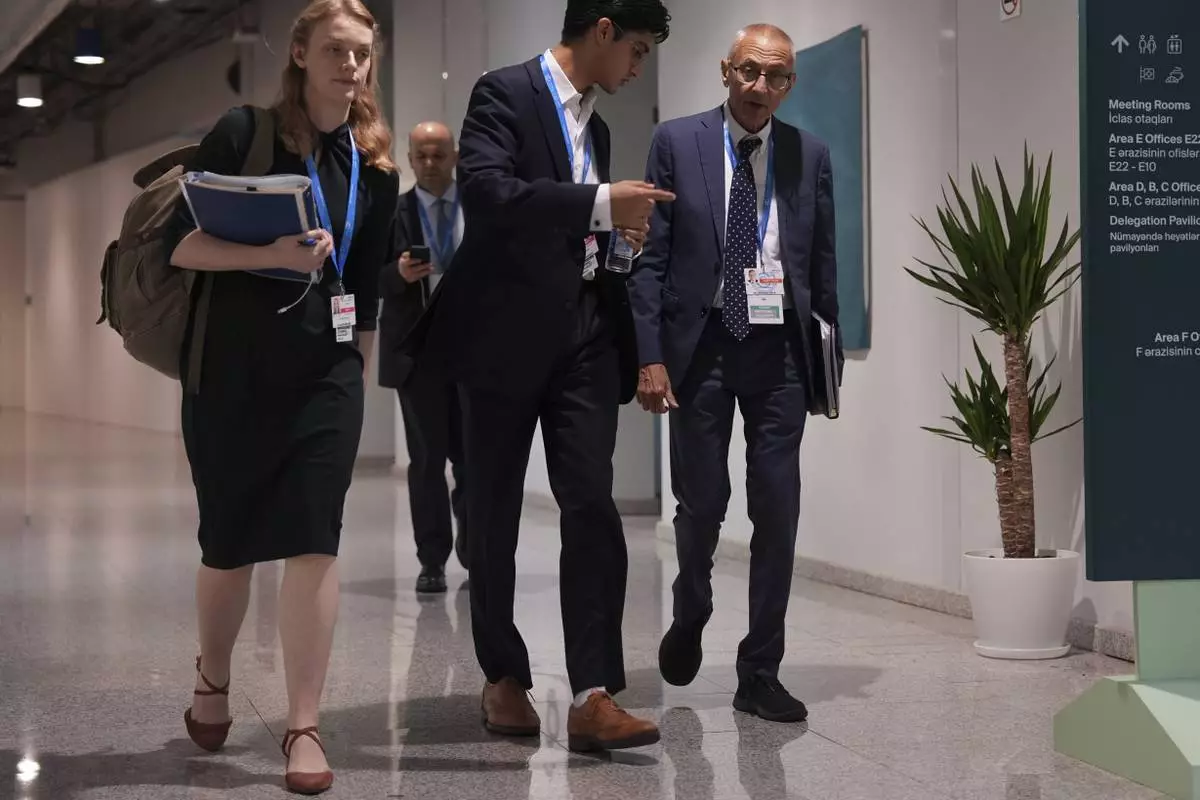
John Podesta, U.S. climate envoy, right, walks through the hallways of the COP29 U.N. Climate Summit in the early hours of Saturday, Nov. 23, 2024, in Baku, Azerbaijan. (AP Photo/Joshua A. Bickel)
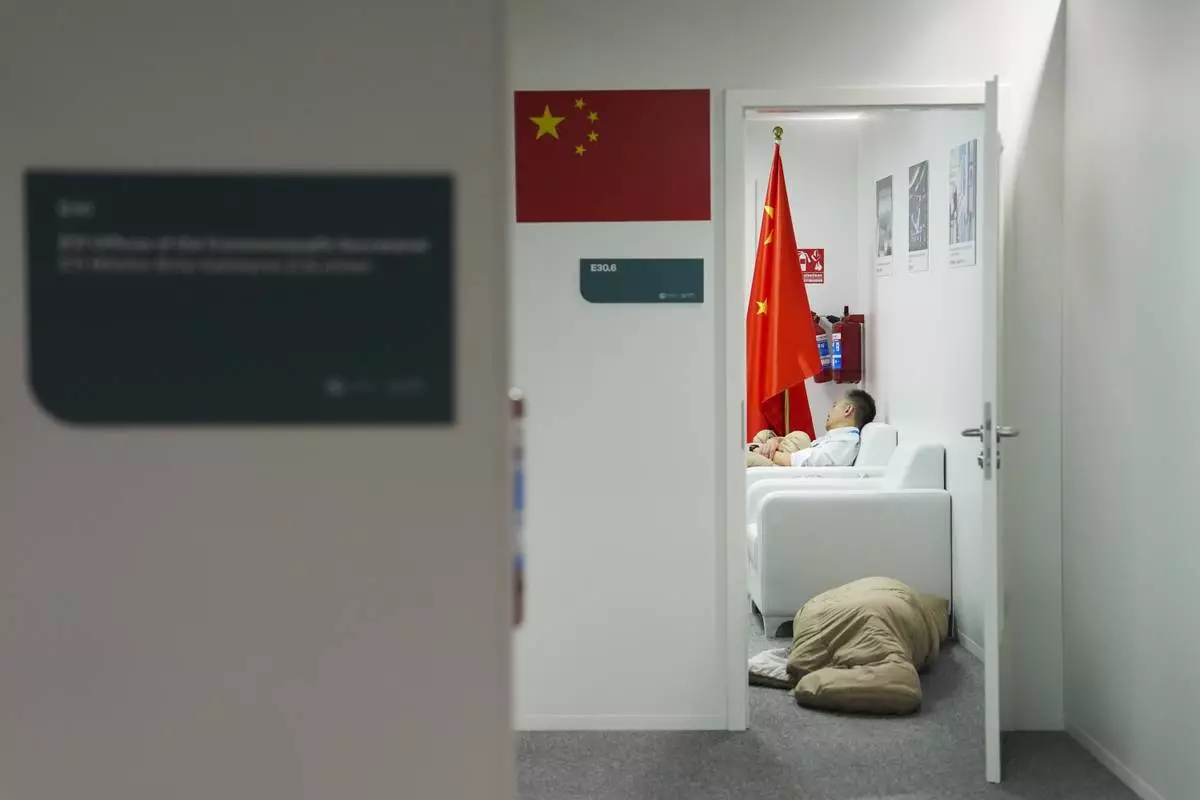
People sleep in the Chinese delegation offices at the COP29 U.N. Climate Summit in the early hours of Saturday, Nov. 23, 2024, in Baku, Azerbaijan. (AP Photo/Joshua A. Bickel)
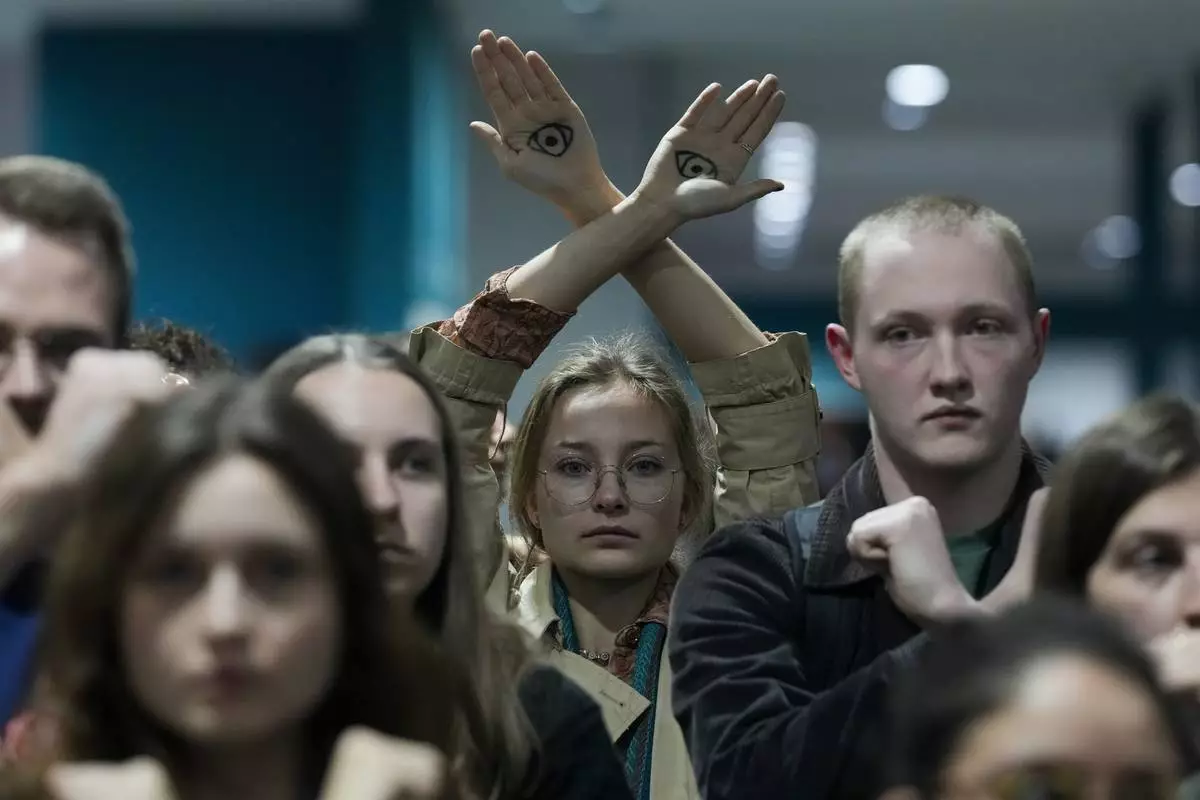
Activists demonstrate in silence protesting a draft of a proposed deal for curbing climate change at the COP29 U.N. Climate Summit, Friday, Nov. 22, 2024, in Baku, Azerbaijan. (AP Photo/Rafiq Maqbool)



